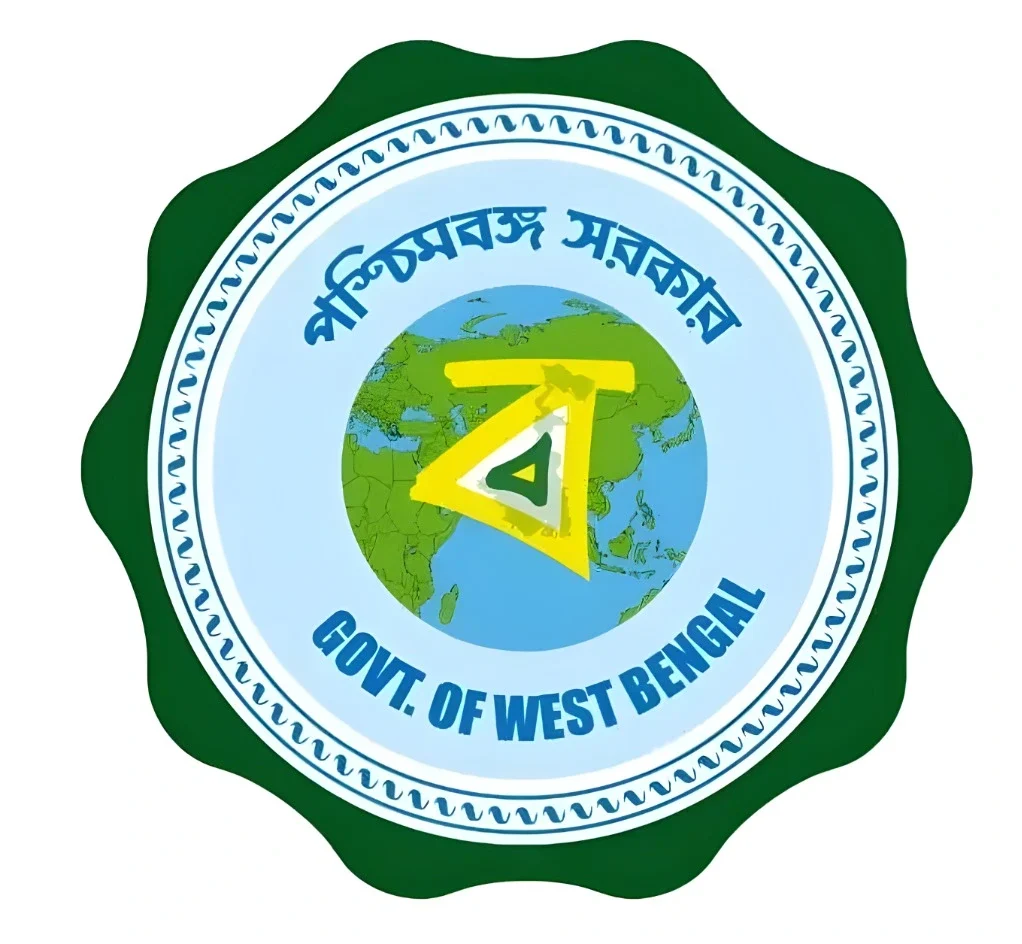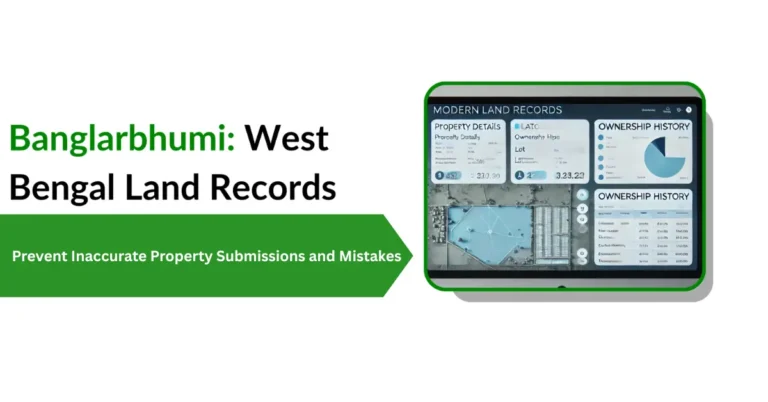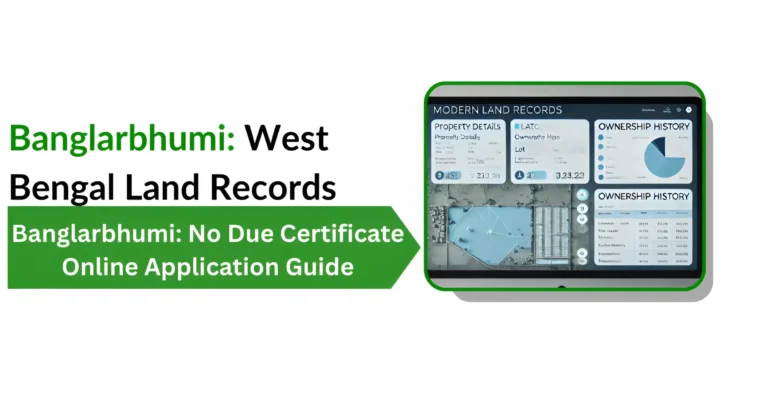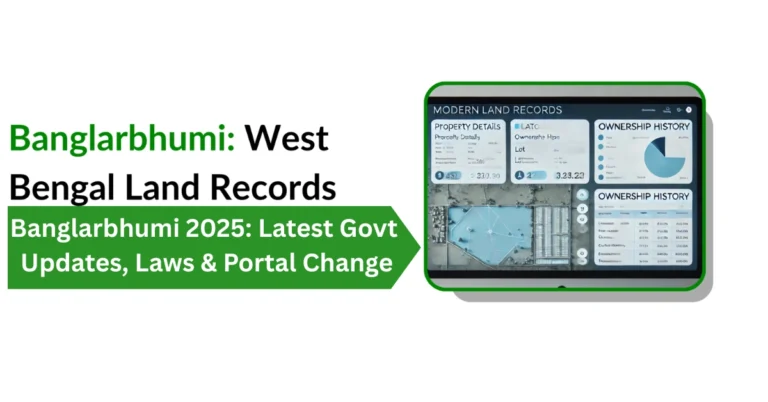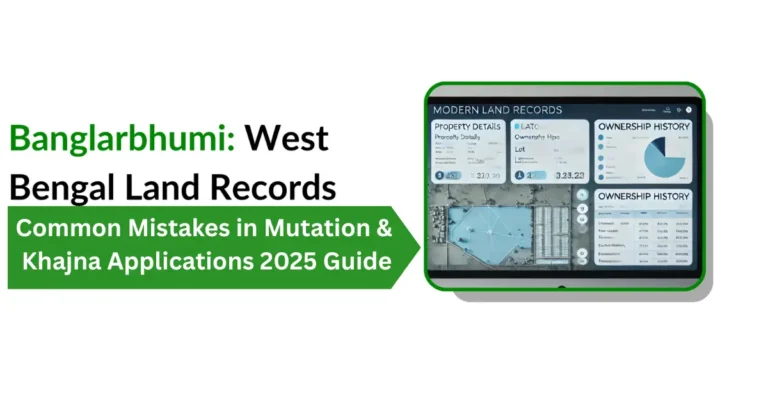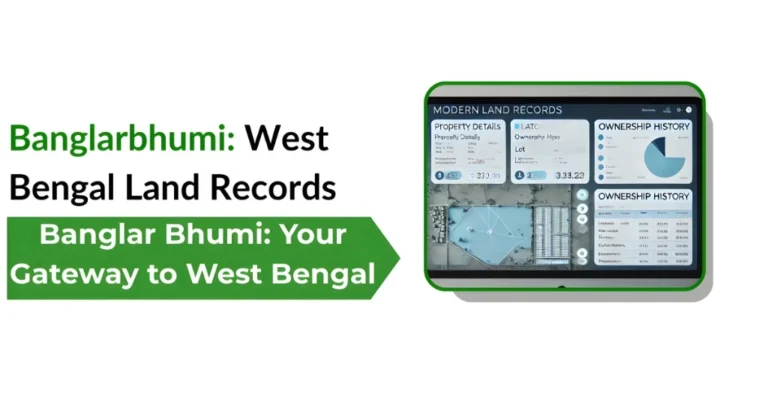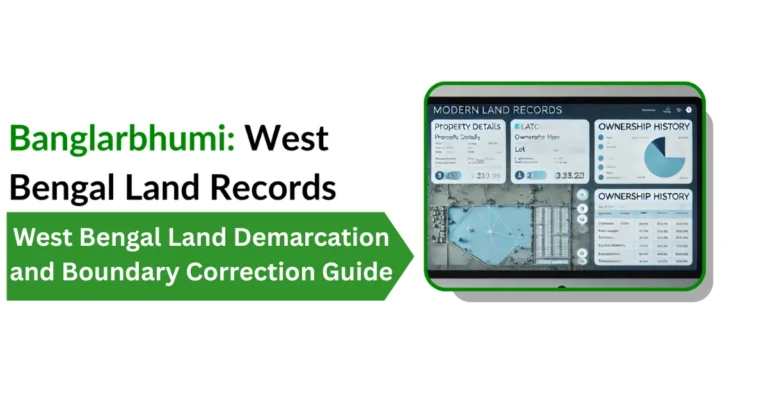Property Registration vs Mutation in Bengal Key Difference
Banglarbhumi Registration vs Mutation in Bengal Key Difference property transactions in West Bengal, it’s essential to understand the processes of property registration and mutation. While they are related, they serve different purposes in the realm of property ownership and documentation.
Property registration
- Purpose: To establish legal ownership and provide public notice of the transaction.
- Process: Involves submitting the sale deed along with necessary documents to the local sub-registrar’s office. The buyer and seller must be present, and the transaction is recorded in the government’s official Double Check Personal Details.
- Importance: Without registration, the transaction is not legally valid, and the buyer cannot claim ownership in a court of law.
Block Land and Land Reforms Officer
Purpose: To update land revenue records and ensure accurate property tax assessments.
Process: After property registration, the buyer must apply for mutation by submitting the registered sale deed, identity proof, and other required documents to the local authority.
Importance: Mutation does not transfer ownership but is necessary for paying property taxes and for future property transactions.
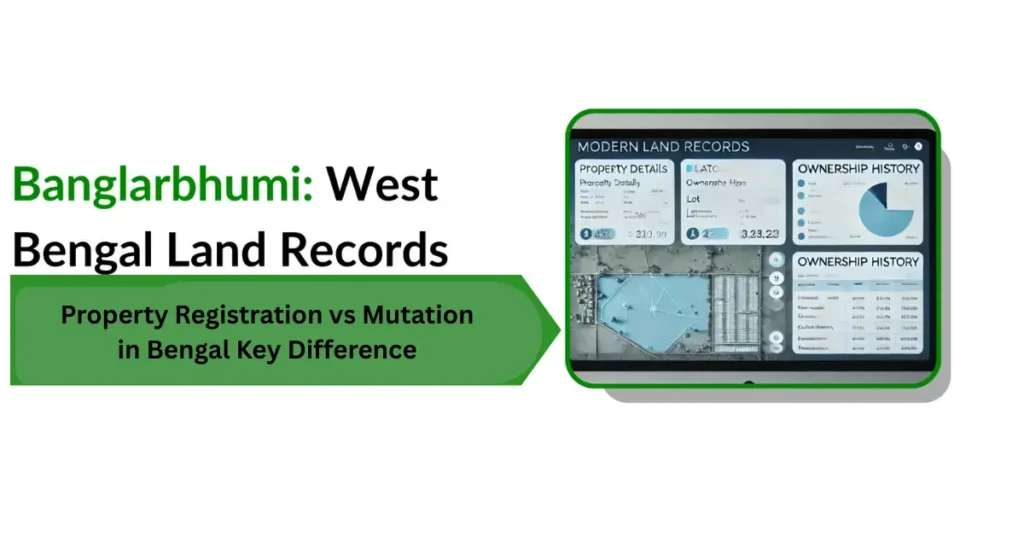
Why Both Are Necessary
- Legal Ownership: Property registration is mandatory to establish
- legal ownership. Without it, any transaction is not legally valid.
- Taxation and Future Transactions: Mutation ensures that the new owner is responsible for property taxes and is recorded in government land records, facilitating future transactions
Property Registration
Visit the Sub-Registrar’s Office: Locate the nearest sub-registrar’s office in your area.
Submit Documents: Provide the sale deed, identity proof, and passport-sized photographs.
Pay Stamp Duty and Registration Fee: These are calculated based on the property’s value and location.
Complete the Process: Both buyer and seller must be present to sign the documents.
Mutation
Obtain Mutation Application Form: Available at the local BL&LRO or municipal office.
Fill Out the Form: Provide accurate details as per the registered sale deed.
Submit Required Documents: Include the registered sale deed, identity proof, and recent property tax receipts.
Follow Up: The local authority will process the application, which may take several weeks.
Common Mistakes to Avoid During Property Transactions
Incorrect Documentation: Ensure all required documents are submitted accurately, especially the sale deed and tax receipts.
Not Completing Both Processes: Many buyers only focus on property registration and neglect the mutation process. This can cause complications later, such as issues with property taxes or selling the property in the future.
Delay in Mutation: Not applying for mutation immediately after property registration can lead to delays in updating the land records, which might affect future transactions or property tax assessments.
Tips for a Smooth Process
Ensure All Documents Are Correct: Double-check all details to avoid delays.
Keep Copies of All Documents: Maintain photocopies of all submitted documents for your records.
Stay Informed: Regularly follow up with the respective authorities to track the status of your applications.
Frequently Asked Questions
Final Thought
Understanding the distinction between property registration and mutation is crucial for property owners in West Bengal. While registration establishes legal ownership, mutation updates land records for administrative purposes. Both processes are essential for ensuring a smooth property transaction and avoiding future complications. Property registration is the legal process of recording the transfer of property ownership in government records.
Under the Indian Registration Act, 1908, it is mandatory for transactions involving immovable property, such as sales, gifts, or inheritance, to be registered at the local sub-registrar’s office. Mutation is the administrative process of updating land or property records to reflect the new owner’s name. It is crucial for property tax assessment and utility services but does not confer legal ownership.
